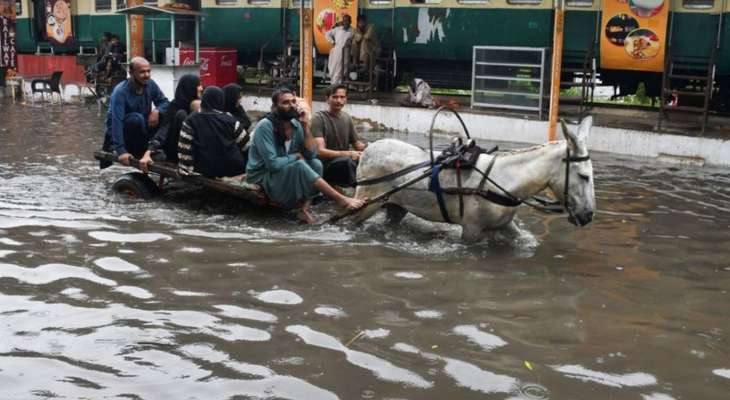Officials said Pakistan has asked the international community to help in its relief efforts in light of the suffering from heavy rains that caused widespread flooding last month and killed more than 800 people.
The financing and reconstruction effort will be a challenge for the cash-strapped country, which is forced to cut spending to ensure the International Monetary Fund agrees to provide much-needed relief funds.
Sardar Sarvaraz, a senior Met Office official, told Reuters on Wednesday that July rains exceeded the national average by 200 percent, making them the heaviest since 1961.
Since mid-June, about 2.3 million people have been affected by heavy monsoon rains in Pakistan, which destroyed 95,350 homes and damaged another 224,100, according to the UN Office for the Coordination of Humanitarian Affairs.
The province of Sindh in the southeast and the province of Balochistan in the southwest were the hardest hit. More than 504,000 cattle died, mostly in Balochistan, and damage to almost 3,000 km of roads and 129 bridges hampered traffic in flooded areas.
A main supply route from coastal Karachi was shut down for more than a week after a bridge to Balochistan collapsed, and flood waters flooded dozens of small dams in the province.
The government closed all educational institutions in Sindh in anticipation of rain on Wednesday and Thursday, and the airport in the city of Nawab Shah remained closed after it was almost completely flooded.
Source: El Nashra
